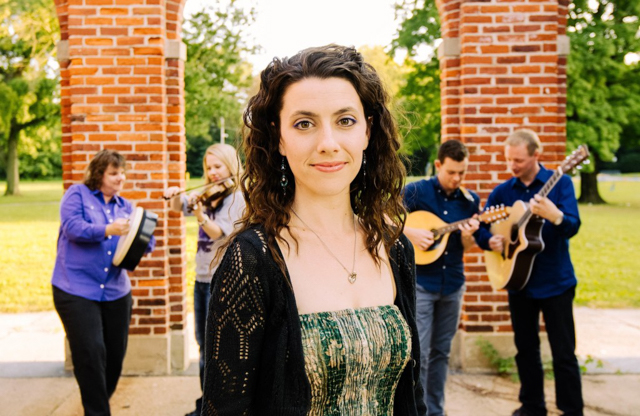Just in case you have any doubt what Mary Kay Mann’s musical interests might be, your first clue might be the tiny wooden figure of Mann playing a Celtic harp on the mailbox outside her home, down a narrow tree-lined street in Media.
Step inside the house and you’re greeted by Celtic harps in the living room, which she uses for teaching.
You’re also greeted by her cats, Muffin and Bob. Muffin isn’t allowed on the table, but she leaps up to greet me, anyway.
Mann teaches Celtic harp, but she also teaches tin whistle and Irish flute, both traditional instruments. She also sings. And hailing back to her musical origins, she also teaches classical flute. Mann also performs.
“I always wanted to play music since I was 2 years old or something,” says Mann. “When we moved to the public school district, I was around 10 and they had classical flute lessons for free so I started with that.”
Playing classical flute took up much of the rest of Mann’s education. She graduated from the University of Delaware as an instrumental music major, with a concentration in classical flute, and wanted to be a band director. Those ambitions didn’t play out over the long term.
“I stopped playing classical music because it was too intense,” Mann says. She recalls a time when she was playing the piccolo in a really good amateur orchestra when the conductor stopped the entire rehearsal to single out the piccolo for a flat note. “I just said, ‘There’s got to be something else.’”
Over time, she was drawn into the world of Irish music, specifically the tin whistle, playing in bands at contra dancing events, which overlapped into Irish music.
Another reason Mann got into Irish music is her family background. She recalls her grandfather, who always talked about going to Ireland. He wasn’t from there, but his parents gave birth to him two years after they came to America. “He had heard so much from his peers about Ireland and always wanted to go back to Ireland, but he never made it,” says Mann.
Mann prefers the freedom that comes with Irish music as opposed to classical music. There is a loose and improvisational spirit expressed in Irish music. You don’t necessarily have to read music to be able to play Irish tunes—although, with her classical background, Mann does.
“When you play Irish tunes you are supposed to improvise a little on them,” Mann explains. “If you play it in a concert setting, you don’t just play the melody the same way each time. So that’s a little bit of an intellectual and musical thing that I really like.”
Mann has performed concerts at festivals, churches, schools and retirement facilities, but the opportunities to play live music have dried up since the Covid shutdown.
Mann has also recorded CDs in the past but has no plans of making any more. Streaming services have made it nearly impossible for artists to make any money from the music they produce.
“I used to do concerts with my duos and we would sell 10 CDs for $15 each and that was cool,” Mann recalls. Once CD copiers became affordable, this business model began to make less sense and eventually it didn’t make financial sense to make CDs at all.
When Mann teaches, often she will ask her students what kind of music they like so that they can work on certain songs they know, but with Irish instruments. Mann has even helped one student work out Norwegian death metal songs on the Celtic harp.
“This year I would ask ‘who do you listen to and we can play some of their music,’ and kids just don’t know. They like certain songs, but they don’t necessarily seek out the artists who make that music,” Mann says.
Mann has found that teaching Irish music has been incredibly rewarding. Right now, she has students that range in age from 9 years old to decades older. One older student has been taking lessons for 25 years.
Mann’s students take lessons with her for any number of reasons, like entering Irish music competitions, playing in traditional Irish music sessions, or just to simply take on the intellectual challenge of learning a new instrument.
After teaching for so many years, Mann’s students have gone to all kinds of places. “I had these two girls, and their band went to Ireland and they sent me a picture with their tin whistles standing on the Cliffs of Moher—playing a tune called “The Cliffs of Moher.” That made my day,” she says. If you want to learn more about Mary Kay Mann’s Irish music lessons you can visit her website.


